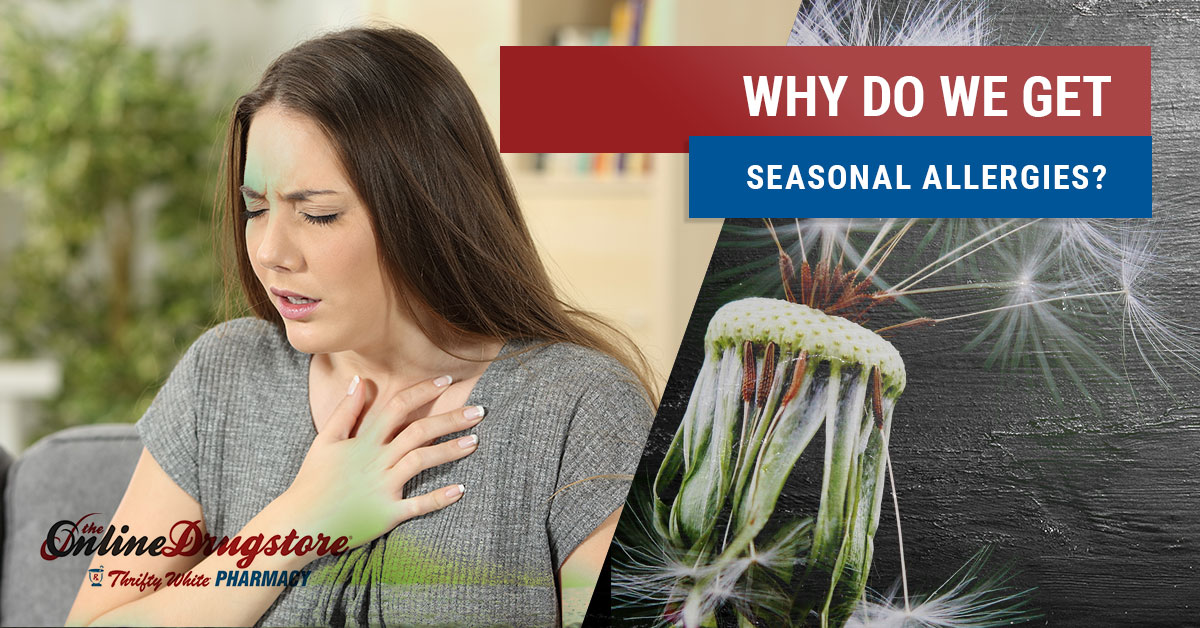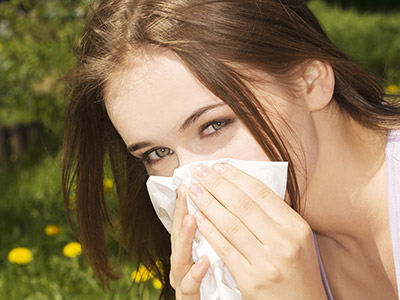

The spring and summer seasons bring an emerald wonderland, but for some, avoiding the outdoors is a necessity because of allergy season. Allergies are miserable and leave you tired and irritable just waiting for a reprieve. So, why do we get seasonal allergies?
In out last post, we offered supplements that provide seasonal allergy support. At Thrifty White Health Essentials, you can find online health products including herbs and over-the-counter allergy medication to help you find relief. If you’re curious as to why we have allergies in the first place, read this article!
Allergies: The Sniffly Season
Allergies tend to appear in two stages of our lives: in early childhood and early adulthood — the unfortunate part is once you have them, they usual worsen over time. Adults who experience allergies and report that they “just came out of nowhere” are going through the second peak of allergies — it’s likely they’ve been there all along, but have just become more of an issues later in life. As kids, we don’t experience the effects of allergies as severely because we were always outdoors running around and rolling in the grass — we were exposed to the grasses and pollens. Now as adults, most of us work indoors and spend a small amount of time outdoors, leaving us vulnerable to allergy season each year.
Why do we get allergies?

There are around 25 million Americans who suffer from seasonal allergies, which simply, is our body’s immune response to the pollinating plants. During the spring and summer months, plants pollinate blasting their sperm cells into the air, hoping to land on another and create a seed. Each sperm cell has a tough outer layer, and together they form a single grain of pollen. All of these tiny particles coming from a massive amount of local plants, while looking for a place to fertilize, often find a nice warm spot in our mouth and nose. When the pollen enters our bodies, this is where the trouble can begin.
- Instead of the body recognizing these substance as harmless pollen particles, it mistakenly thinks they are foreign invaders and triggers an immune response. Your body then employs a host of soldiers to investigate what’s going on.
- White blood cells (WBC) - The WBCs mingle with the pollen inside your nose and raise the alarm that they are invaders.
- Once the pollen is exposed, the WBCs produce antibodies that lock onto the pollen.
- The antibodies will then attach to other antibodies called basophils and mast cells, and they’ll have a little conversation, so if pollen tries to enter the body, all the antibodies can work together and the basophils and mast cells will break open.
- When these antibodies break open they expose their histamine-filled centers, which is a substance your body uses to fight infections and other health issues by putting into position the inflammatory response. The inflammatory response swells vessels, and tissues become swollen and warm to try to speed the recovery process. When a large amount of histamine is present, this is where allergy symptoms arise with irritated nasal passages, itchy and watery eyes, and sneezing.
Why do some people get allergies, when others don't?
There is a genetic component to allergies, which is why some people get them and others don’t.
Environmental factors also play a role, as allergies continue to rise. Some hypothesize that this is as a result of the hygiene effect, where children are spending less and less time outdoors and are continually exposed to a sterile environment. Because of the lack of exposure to pathogens and allergens it causes a hiccup in the immune system, making people more prone to illness and allergies, thus WBCs mistaking pollen for harmful intruders.
How allergies and climate change are related.
Did you know that scientists have recently determined that as a result of climate change, allergy season will have higher amounts of pollen and will last longer? Currently, the US experiences allergy season from April through June. It is forecasted that allergy season will begin in March and go through late June — and remember, the pollen count will be much higher!
What can you do to combat allergy seasons?
Over-the-counter antihistamines are most people's first choice for allergy relief, but supplements such as goldenrod and quercetin are also extremely beneficial. If you can’t catch a break, check online for high pollen count days, and avoid going out.
Maybe it’s time to begin exposing ourselves to the great outdoors more frequently and for longer periods to adjust to the season! After all, allergies are an immune response that involves WBCs spilling histamine and causing an inflammatory response. The more we’re exposed to the local pollen and grasses, the less of a histamine response we’ll have.
In the meantime if you need allergy relief, shop all of our online health products including over-the-counter allergy medication.



